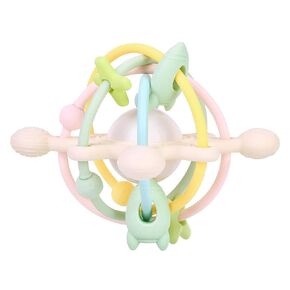- Shopping, made easy.
- /
- Get the app!
1. Although it is distressing, the most important thing to remember if your baby is affected by colic is to remain calm. 2. Introduce a soothing routine around the time of the day when your baby's colic is usually at its worst, this is typically in the evenings. 3. Keep a log of the times when your baby's colic is at its worst – you may be able to find a pattern associated with any triggers, allowing you to understand better how to ease the symptoms. 4. Try a one-week trial of Colief Infant Drops to help diagnose whether temporary lactose intolerance could be the cause of your baby's colic symptoms. 5. Despite the characteristic inconsolable nature of the crying, it may be possible to reduce colic symptoms by trying different soothing techniques, as some babies may respond better to some techniques than others. You may find some of the following helpful: Holding the baby during crying episodes Wearing baby in a sling Gentle motion, such as rocking, pushing them in a pram or going for a drive Background noise, such as the vacuum cleaner, hairdryer or washing machine White noise A warm bath Baby massage
 Pink Stork Baby Bath Flakes, Calming Fragrance Free Bath Salts for Newborns and Toddlers to Help Soothe Diaper Rash, Irritation and Support Restful Sleep - 16 oz
KWD 5
Pink Stork Baby Bath Flakes, Calming Fragrance Free Bath Salts for Newborns and Toddlers to Help Soothe Diaper Rash, Irritation and Support Restful Sleep - 16 oz
KWD 5
 Baby Rattle Teether Toys, Silicone Chew Toy with Rattles for Babies 0-3-6-12 to 18 Months, Infant Sensory Montessori Teething Toys, Boys Girls Baby Shower Gifts(Cream)
KWD 2.500
Baby Rattle Teether Toys, Silicone Chew Toy with Rattles for Babies 0-3-6-12 to 18 Months, Infant Sensory Montessori Teething Toys, Boys Girls Baby Shower Gifts(Cream)
KWD 2.500
 Colief Baby Scalp Oil | Soothing Moisturizing Oil for Babies Scalp and Skin | Preventative of Itchy, Flaky, Dry, Damaged Skin on Infants | With Rosehip Oil, Chamomile and Vitamin E | 1.01 Fl. Oz
KWD 3.500
Colief Baby Scalp Oil | Soothing Moisturizing Oil for Babies Scalp and Skin | Preventative of Itchy, Flaky, Dry, Damaged Skin on Infants | With Rosehip Oil, Chamomile and Vitamin E | 1.01 Fl. Oz
KWD 3.500
 Colief Baby Massage Oil | Soothing Oil For Infants | Made With 100% Natural Ingredients Including Sweet Almond Oil, Lavender Oil, Jojoba & Vitamin E | Suitable For Babies 3+ Months | 3.38 Fl. Oz
KWD 3.500
Colief Baby Massage Oil | Soothing Oil For Infants | Made With 100% Natural Ingredients Including Sweet Almond Oil, Lavender Oil, Jojoba & Vitamin E | Suitable For Babies 3+ Months | 3.38 Fl. Oz
KWD 3.500